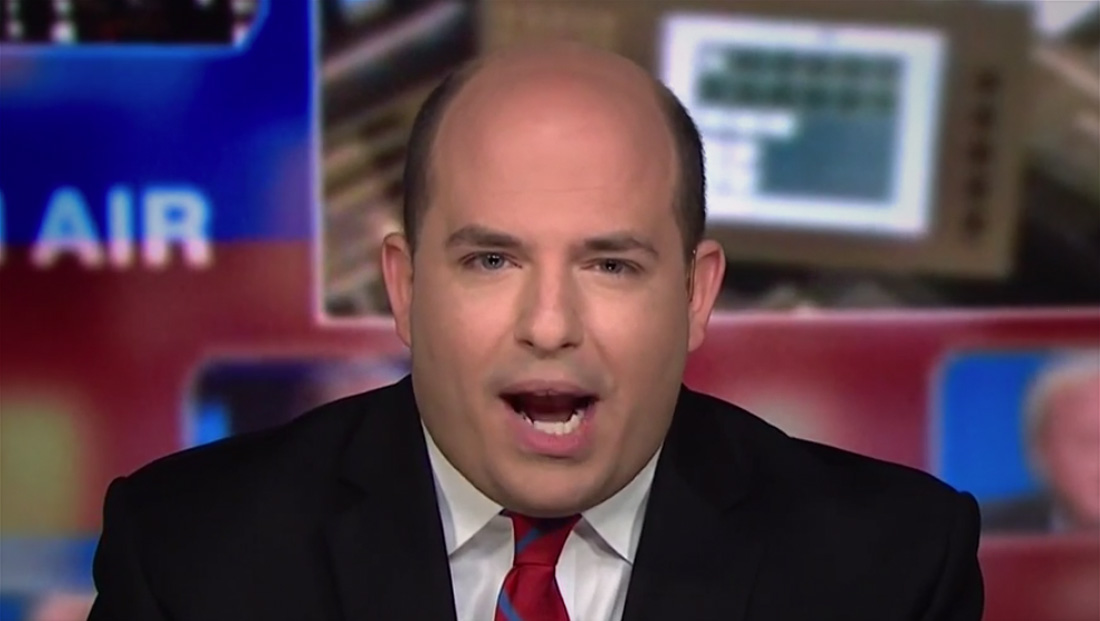Why did CNN let Brian Stelter go — and what could be next for him?
By MixDex Article may include affiliate links

Following news that his show “Reliable Sources” would be canceled and Brian Stelter would leave CNN, The New York Times is reporting about some of the behind-the-scenes financial reasons that could be behind the cuts.
Stelter was reportedly making nearly $1 million a year at CNN for hosting “Reliable” plus authoring a daily email newsletter and appearing across CNN programming and digital. He also briefly hosted a daily version of “Reliable” on CNN+ before it was shut down after less than a month in operation earlier in 2022.
CNN and its parent WarnerMedia recently became part of Warner Bros. Discovery, combining the former AT&T-owned division with Discovery Inc.’s assets.
One of the big selling points behind that deal was a reported $3 billion in savings by trimming staff and reducing redundancies.
Stelter’s show has never big a massive ratings success in the entire 30-plus years it’s been on the air with a series of different hosts, which means it likely didn’t generate huge amounts of ad revenue.
That said, it also airs Sunday mornings, a challenging time on the schedule, so previous management may have been happy to let the show stay on the air because there wasn’t an alternative that could do better.
Stelter also managed to generate a lot of attention for CNN outside of just his show, with segments from his show circulating on social media and being covered by other media outlets (ironically, many of those are, like “Reliable Sources,” in the business of covering the media industry). Because of this, his total impressions across all platforms was likely high.
However, some of that attention was reportedly starting to irk WBD management, who are reportedly looking to make CNN’s coverage more balanced and focus less on analysis and more on news.
Stelter, among other prominent anchors, have become known for heralding progressive viewpoints and striking back against conservative media on social media and on air.
That, along with a fairly high salary, probably made Stelter a prime target to get shown the door.
According to the NYT, Stelter had just signed a new four-year deal about a year ago. There were no details about the terms of that contract, but it’s not uncommon for high-profile talent to have clauses in their agreements that include payouts in the event their show is canceled or the network opts to let them go.
In some cases, the contracts can even force the network to continue paying the full value of the deal — essentially paying the person for not working, though it’s not clear if Stelter’s deal had this type of provision.
Either way, it’s also not uncommon for talent agents and attorneys to negotiate exit deals with networks that can include a reduced payout even if the talent is technically entitled to more. In some cases, these negotiations include adding non-compete or non-disclosure agreements.
These types of agreements can take weeks or months to work out, so it’s possible that Stelter’s exit has been under negotiation for some time now, though this was not confirmed by CNN or him.
Also not confirmed is if Stelter had to sign a non-compete barring him from joining another media outlet for a few months to a year after exiting CNN. In some cases, talent who have their shows canceled by the network are exempt from these types of restrictions, but, as mentioned, non-competes can also be added in during exit negotiations.
In some cases, non-competes only limit talent from working in a specific medium — such as TV. This could, in theory, allow them to join a digital platform and write stories or perhaps even appear in video clips or streaming because these might not be considered television under the terms of the exit deal.
It’s probably unlikely that Stelter would join Fox or another right-wing media outlet. MSNBC is probably a more likely possibility, though execs there could be wary of the reputation Stelter built while at CNN.
Of course, digital journalism has become the landing places for many ex-network anchors — including self-funded ventures. There are a variety of these that cover the media industry, including Puck News, Vox, Insider, Axios, Mediaite and more.
Stelter could also opt to strike out on his own, perhaps launching a podcast (another common move for ex-anchors) or standalone digital brand that uses his expertise and sources to offer original content.
Popular Searches
- TV Industry News
- Broadcast Engineering News
- Broadcast Design News
- TV Talk Shows
- TV Syndication
- TV Advertising
- TV News Jobs
- TV Industry Mergers and Acquisitions
- TV Anchors
- Cable News
- Late Night TV
- TV Syndication News
- Broadcast Industry News
- TV News Drone Journalism
- TV News Augmented Reality
- TV Weather Forecasting
- TV News Journalism
- TV News Ethics
- OTT News
- News About NBC
- News About CBS
- News About ABC
- News About CNN
- News About MSNBC
- News About Fox News

